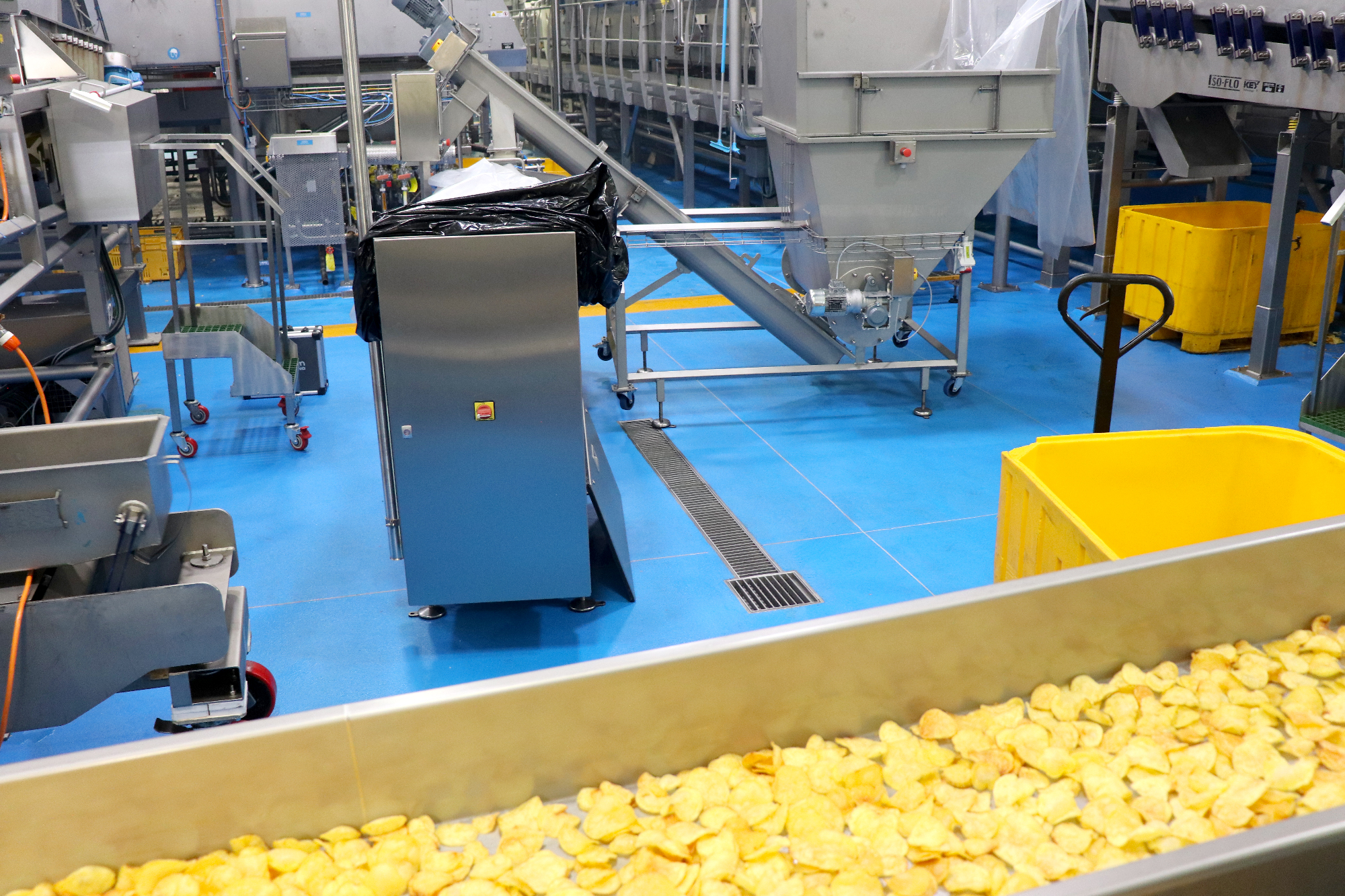A leading snack brand have spent 150 years building a strong reputation as a quality food manufacturer. Their potato chips have been an integral part of their success as a market leading brand with a large range of products on supermarket shelves.
As a result of this success its production facility has been expanded to increase capacity and efficiency. The new facility was designed by Designgroup Architects h + k and completed in 2020. It currently processes on average 400 tonne of potatoes per week, equating to approximately 720,000 packets of chips per week.
The production equipment used at their facility is industry leading. This includes automated machinery along large production lines, the processing stages are separated into defined locations so that the infrastructure in the areas can cater to the requirements of each stage.
The separating, washing, and cooking stages presented unique challenges the design team had to address. During these stages large volumes of water and other liquids are used, the building needed to be designed to cater to the daily operations and weekly boil outs / deep cleans, but also withstand significant dumps of water to keep floors clear of hazards should they occur. The facility also recycles waste water from the production cleaning process to be reused, adding another layer of consideration for drainage as other facilities interact with the overall system.
The drainage systems around the large, and high-tech, equipment needed to be designed to work efficiently through all the anticipated scenarios that could be foreseen, as well as provide a robust, durable, and a hygienic solution.
Allproof Industries, a specialist in commercial food and beverage production facility drainage, was engaged to assist in the design and manufacturing of a system that would meet the operational requirements over the lifetime of the facility. Allproof worked closely with the design team to create the optimal drainage solution for the challenges faced. Drainage systems are built into the floor slab to suit the layout and operation of the production facility. It is imperative the system is designed to fulfil all the requirements as it can be costly to remedy if it does not perform as needed.
A good drainage system contributes to food safety, hygiene and cost control, all vital factors in a successful commercial food operation.
The ladder grate with a load class C rating (AS3996) was selected as large machinery will often pass over drainage systems due to the nature of the facility being a production factory. Further to this the ladder grate openings are large which improves hydraulic performance and can remove solids (potatoes) from the floor surface catching them in the sump’s strainer basket, reducing trip hazards.
Channel depth is a factor in waste water catchment and hydraulics. The channels were selected / designed to provide enough capacity to capture the surface waste water so not to cause flooding or safety hazards. Each channel section terminates at a sump, an outlet performs better hydraulically if there is a head of water creating pressure, this increases the flow rate and thus the speed in which waste water is removed from the drainage channel system. Therefore, the depth of the sump was created to a requested measurement as determined by the hydraulic design.
The drainage system is made from stainless steel as it makes an excellent hygienic material for food processing facilities. It contains no pores, cracks, or open spaces for bacteria, including odour to embed itself in, as it is a self-contained piece of material. Its great mechanical properties mean it’s also resistant to dents and surface defects ensuring the surface remains sealed for hygienic purposes. It is also easy to maintain/clean ensuring that bacteria doesn’t have an opportunity to grow or spread.
Overall, Allproof manufactured and supplied 69 metres of stainless-steel channel drain with 22 sumps either connected to or separate from the channel drain system. This provides an excellent case study of a food manufacturer looking to specialised expertise. By using local knowledge and manufacturers the potato chip brand ensured the success of their project positioning them to meet growing demand in their own product offering.






